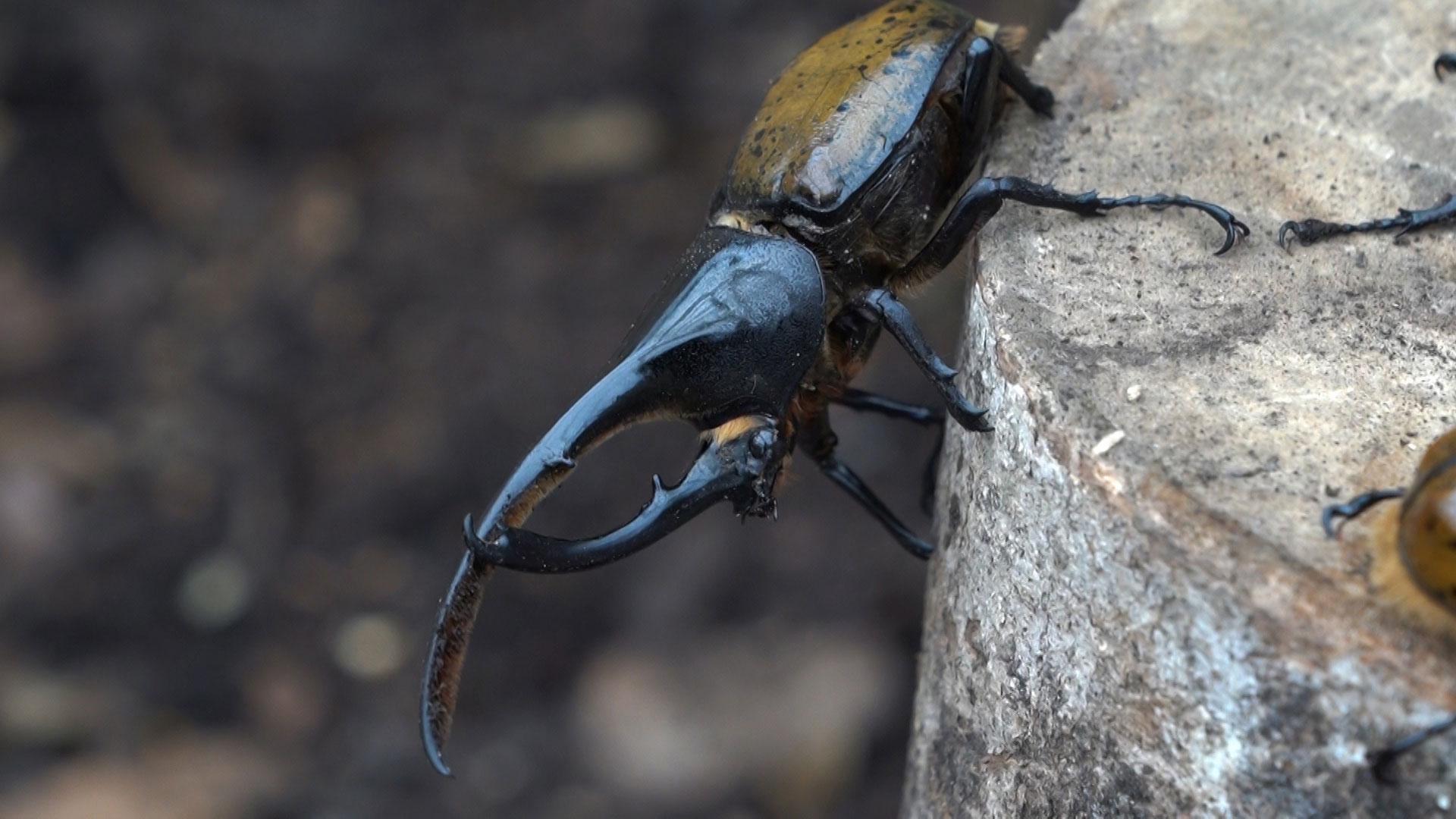This Colombian company is trying to convince farmers to use beetle poop fertilizer
Towering trees and blooming bushes in a small forest outside the Colombian town of Tunja are thriving — all thanks to beetle poop.
“This place used to be a grazing field for cows,” said German Viasus as he walked around the small forest he planted with fertilizer made from the poop of rhinoceros beetles.
“In less than seven years, we reforested it with very tall trees and dense vegetation.”
“In less than seven years, we reforested it with very tall trees and dense vegetation, he said.”
Related: Did the world ‘build back better’ since the start of the pandemic? Not so much.
Tierra Viva, Viasus’ company, has been making beetle manure for the past 15 years. They’re among a handful of businesses around the world experimenting with insect-based products to provide farmers with an alternative to chemical fertilizers.
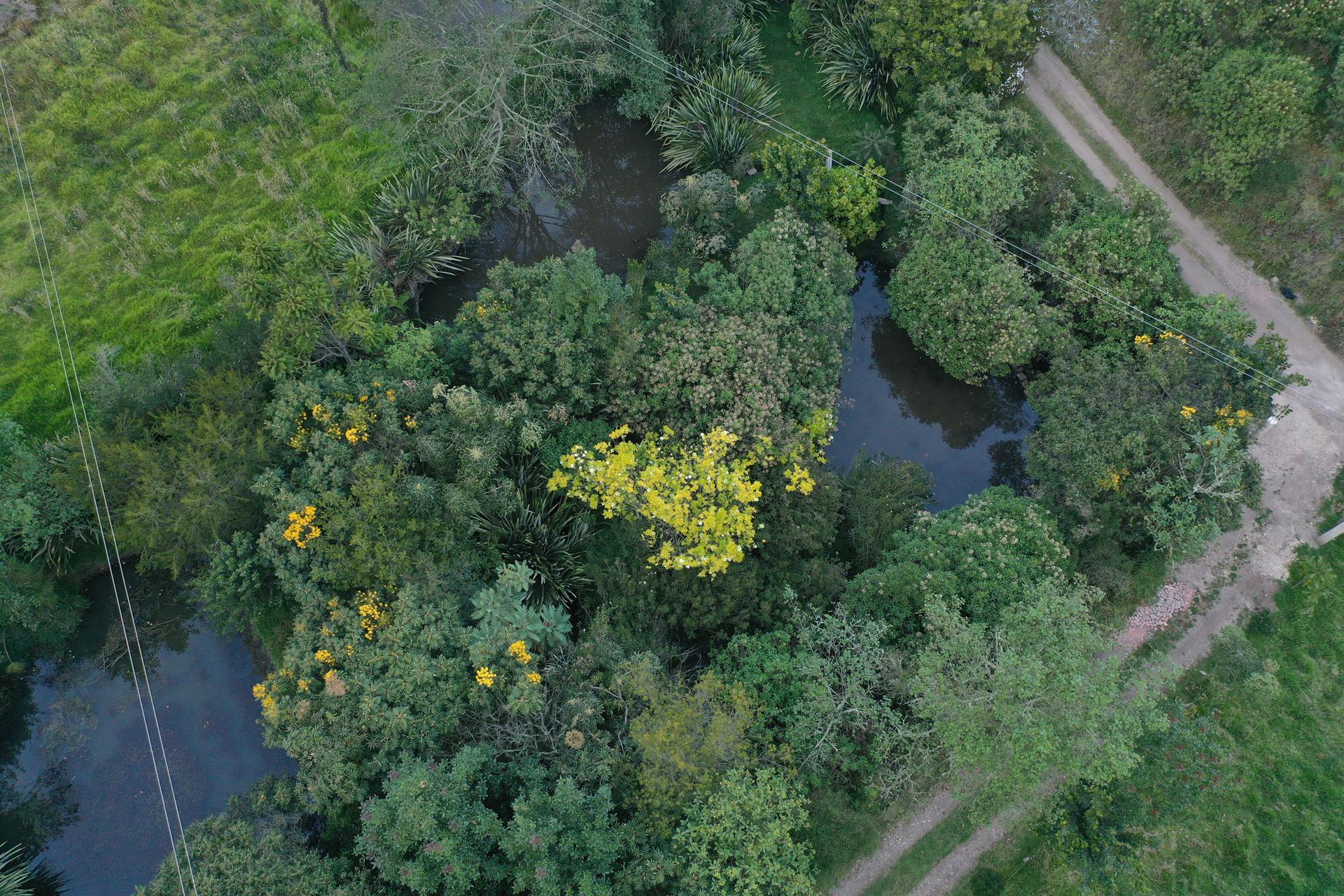
In the last century, human-made fertilizers have boosted crop production, making it easier to feed more people with the same land. But that’s come at a cost, as fertilizers made from ammonia and other chemicals pollute the atmosphere, as well as rivers and lakes.
If efforts like Tierra Viva succeed, they could help to decrease the negative impact of agriculture on the environment.
“Every year we need to come up with healthier ways of making food,” Viasus said at his lab.
Related: Desalination brings fresh water — and concern — to an Indigenous village in northern Mexico
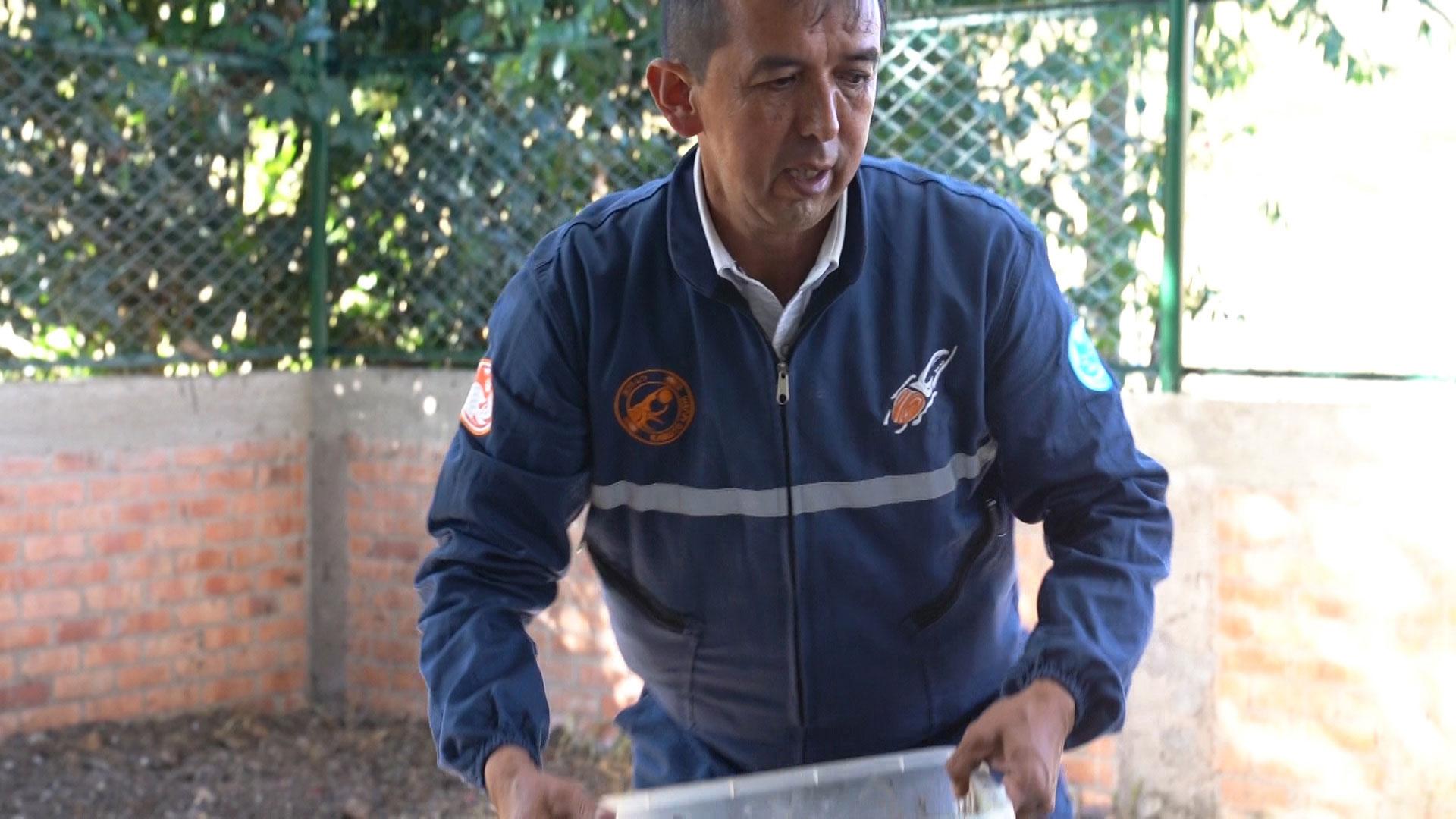
At Tierra Viva, manure production starts every Friday, when a truck loaded with discarded bits of vegetables and fruits arrives at the company’s facilities.
Using shovels, workers compact the trash and organize it into big mounds. Then they pour a layer of sawdust on it and a solution that contains microorganisms.
Finally, they place hundreds of beetle larvae on the mounds. The insects are about the size of shrimp.
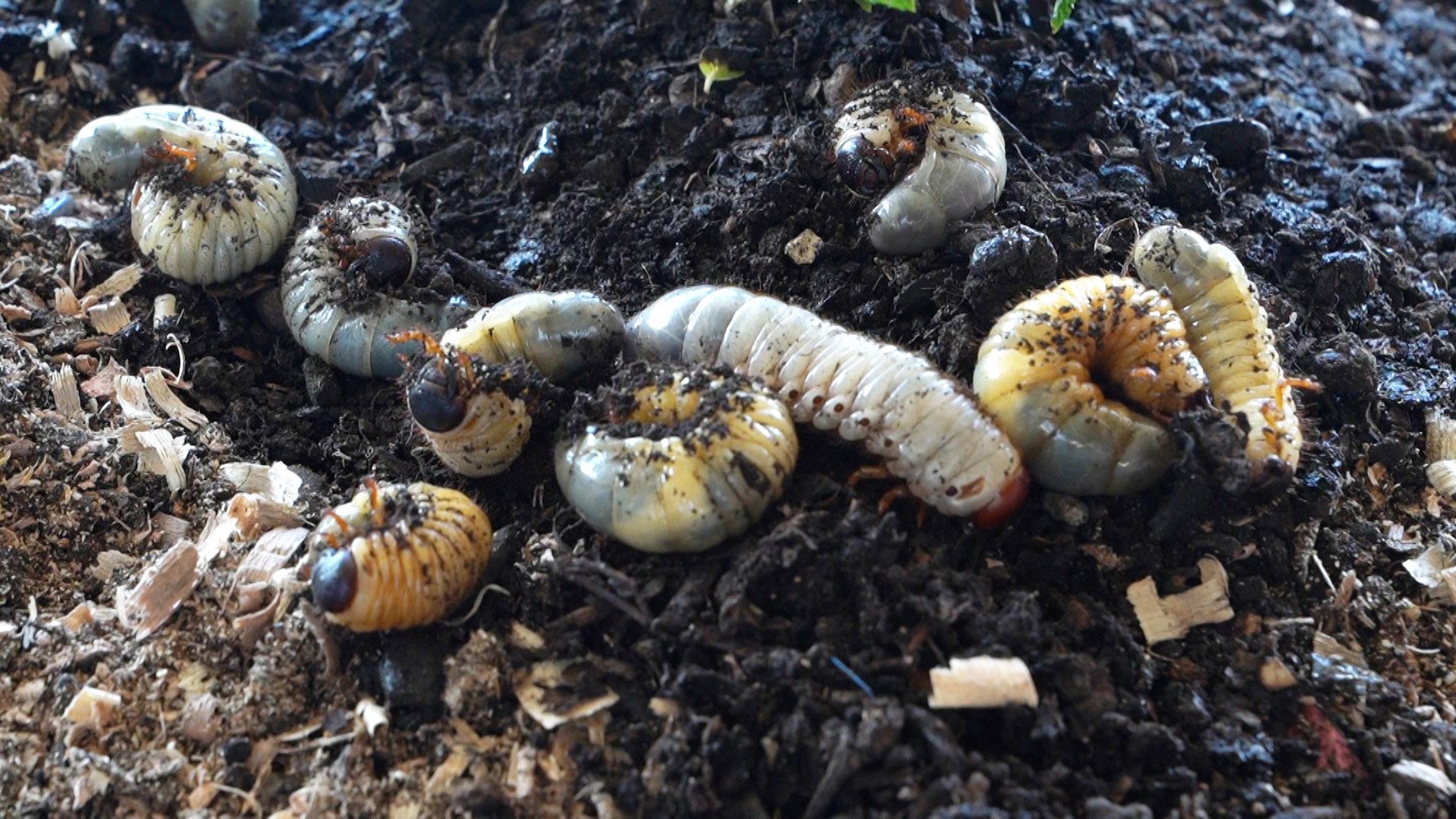
Viasus said that within four months, the larvae will eat up all of the trash below them and leave behind a big pile of nutrient-rich feces. The process is repeated each week to keep production flowing.
“When we started in 2005, we made about 35 tons of fertilizer,” Viasus said. “Now we make about 120 tons each year.”
Scientific studies suggest that insect fertilizer can help plants grow bigger and increase their health.
Related: ‘Eating to Extinction’ author rallies for a more diverse global food system
Louise Henault-Ethier is a Canadian biologist who has researched the properties of insect manure or “frass.” She conducted an experiment where she grew carrots and radishes with frass next to vegetables without any fertilizer.
The study found that vegetables planted with frass grew 16 times larger, on average, than the control group.
“It was impressive,” Henalt-Ethier said. They had to repeat the experiment twice to make sure it was not a mistake, she said.
A study carried out in Spain two years ago also suggests that plants fertilized with beetle manure are more resistant to pests.
That’s because insect excrement, which also includes shell bits, contains a substance known as chitin.
“The plant will detect the chitin and think it’s being attacked by a potential insect pest, so it’s going to boost its immunity and produce molecules…”
“The plant will detect the chitin and think it’s being attacked by a potential insect pest,” Henault-Ethier said. “So it’s going to boost its immunity and produce molecules” to defend itself.
Related: ‘We want justice’: Indigenous communities in peril after major oil spill in Ecuador’s Amazon
Despite these benefits, many farmers continue to use chemical fertilizer because it provides better results in the short-term as it supplies plants with higher concentrations of nitrogen and phosphate.
A recent market study by the Business Research Company estimates that the global market for chemical fertilizers was worth $127 billion in 2020, while sales of organic fertilizers are only 10% of that amount, according to information compiled by Meticulous Research.
Still, many insect manure producers are hoping that demand for their eco-friendly products increases in the coming decades as governments attempt to cut back on carbon emissions.
Related: Seemingly small shifts in global temperatures have huge consequences for the planet
Most chemical fertilizers are made by taking nitrogen from the air and mixing it with methane gas at high temperatures in a carbon-intensive process.
In Colombia, Viasus is teaching some communities how to process trash with beetle larvae in an effort to boost organic fertilizer production.
Turmeque, a small town with about 7,000 people, is the latest to sign up for the training.
“The main reason we are trying this is to keep our environment clean and to keep mosquitoes away. … But it also generates fertilizer that we will be able to sell to local farmers.”
“The main reason we are trying this is to keep our environment clean and to keep mosquitoes away,” Turmeque Mayor Pedro Murillo said. “But it also generates fertilizer that we will be able to sell to local farmers.”
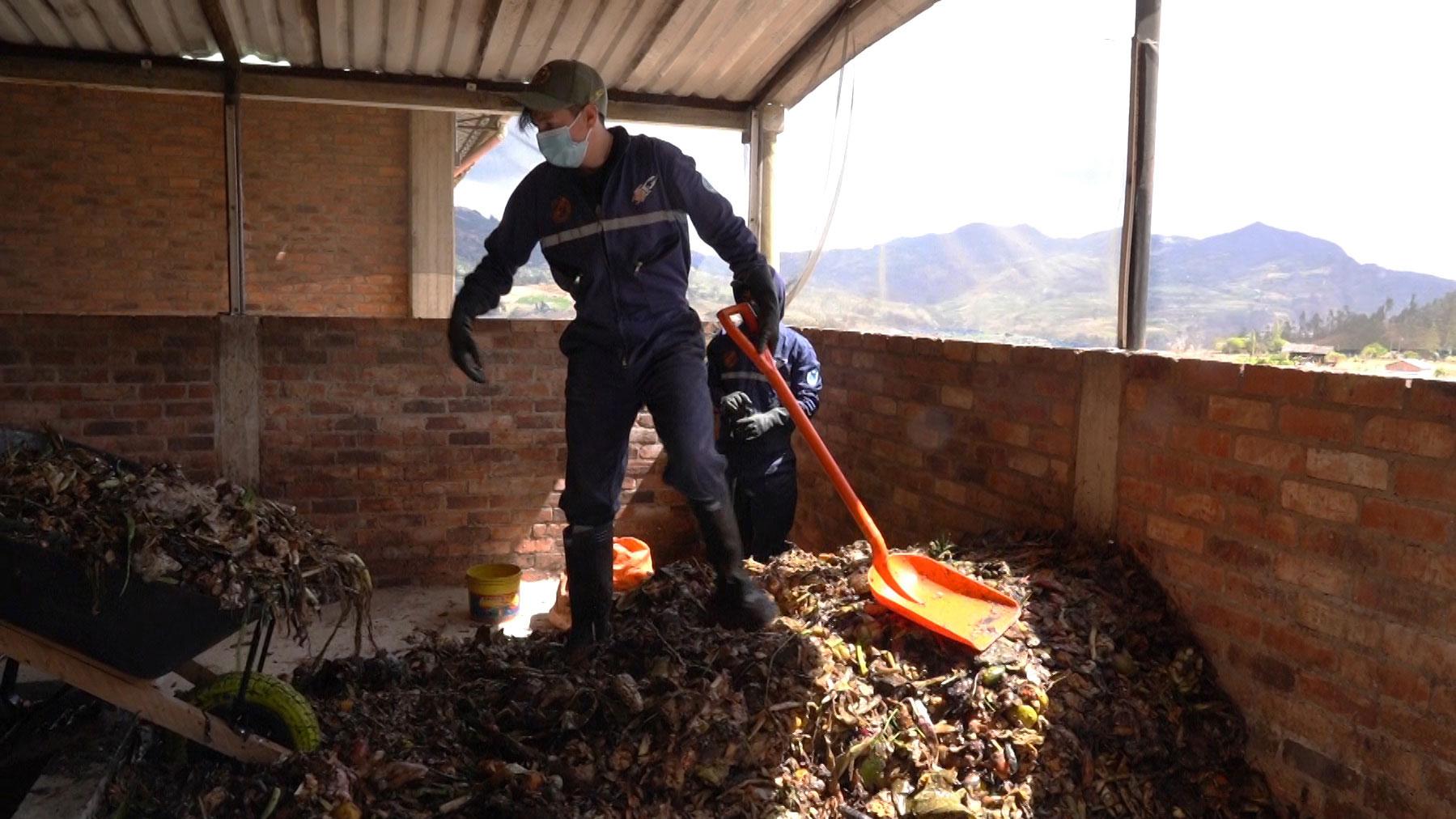
And while demand for insect fertilizer climbs, Viasus has also found another way to make money from his larvae.
When they’re fully grown rhinoceros beetles with curved horns and shiny exoskeletons, he sells them to collectors in Japan and Europe.
A pair of rhinoceros beetles can fetch up to $300.
